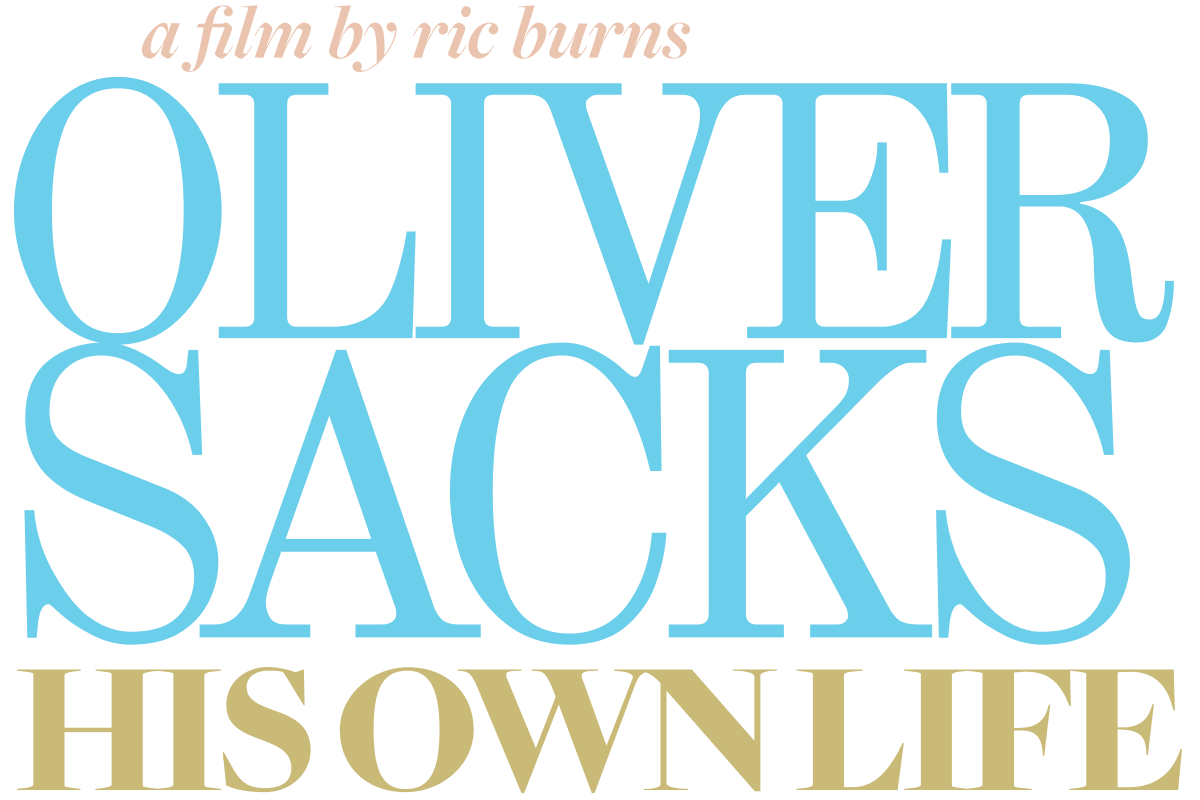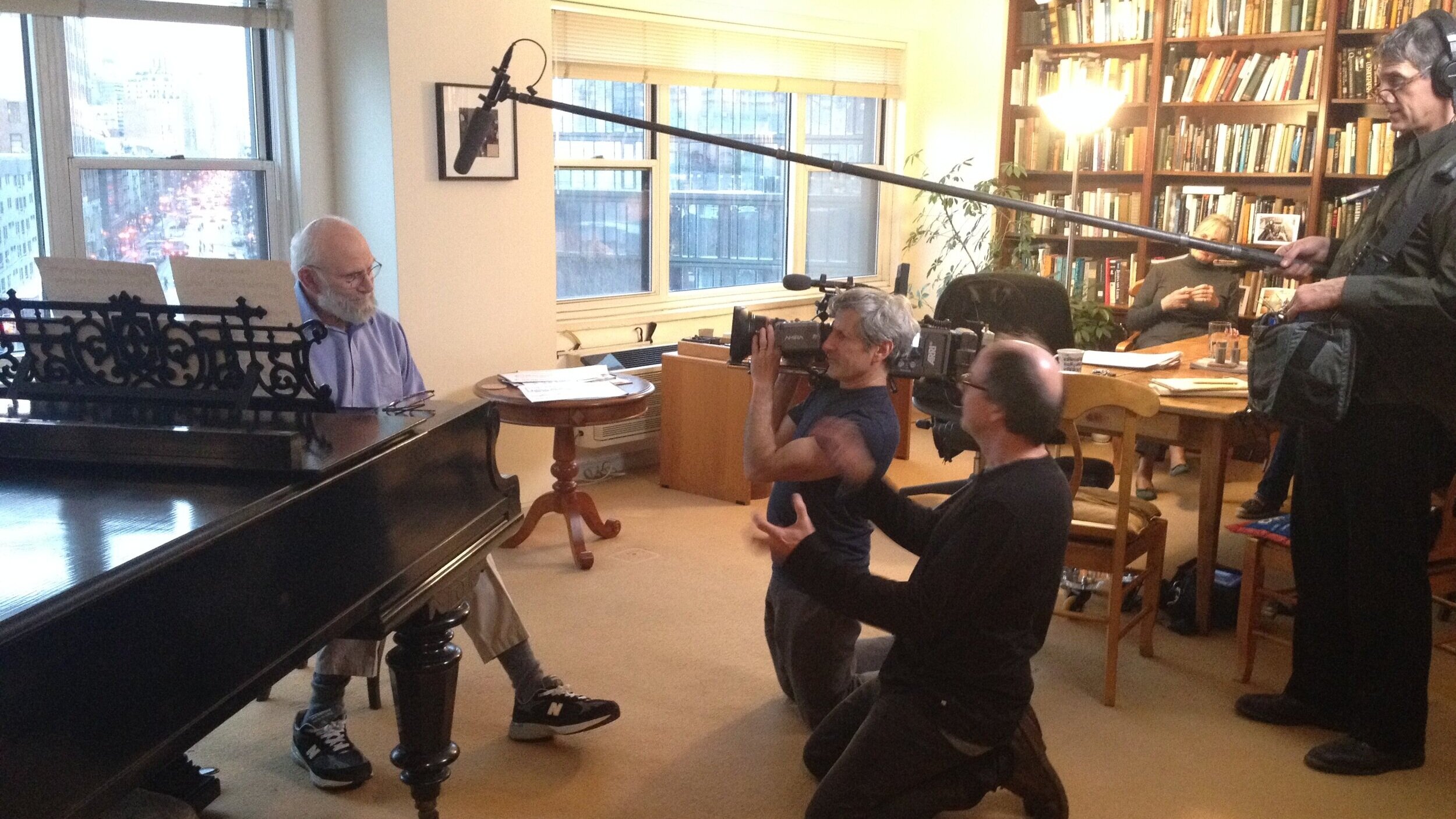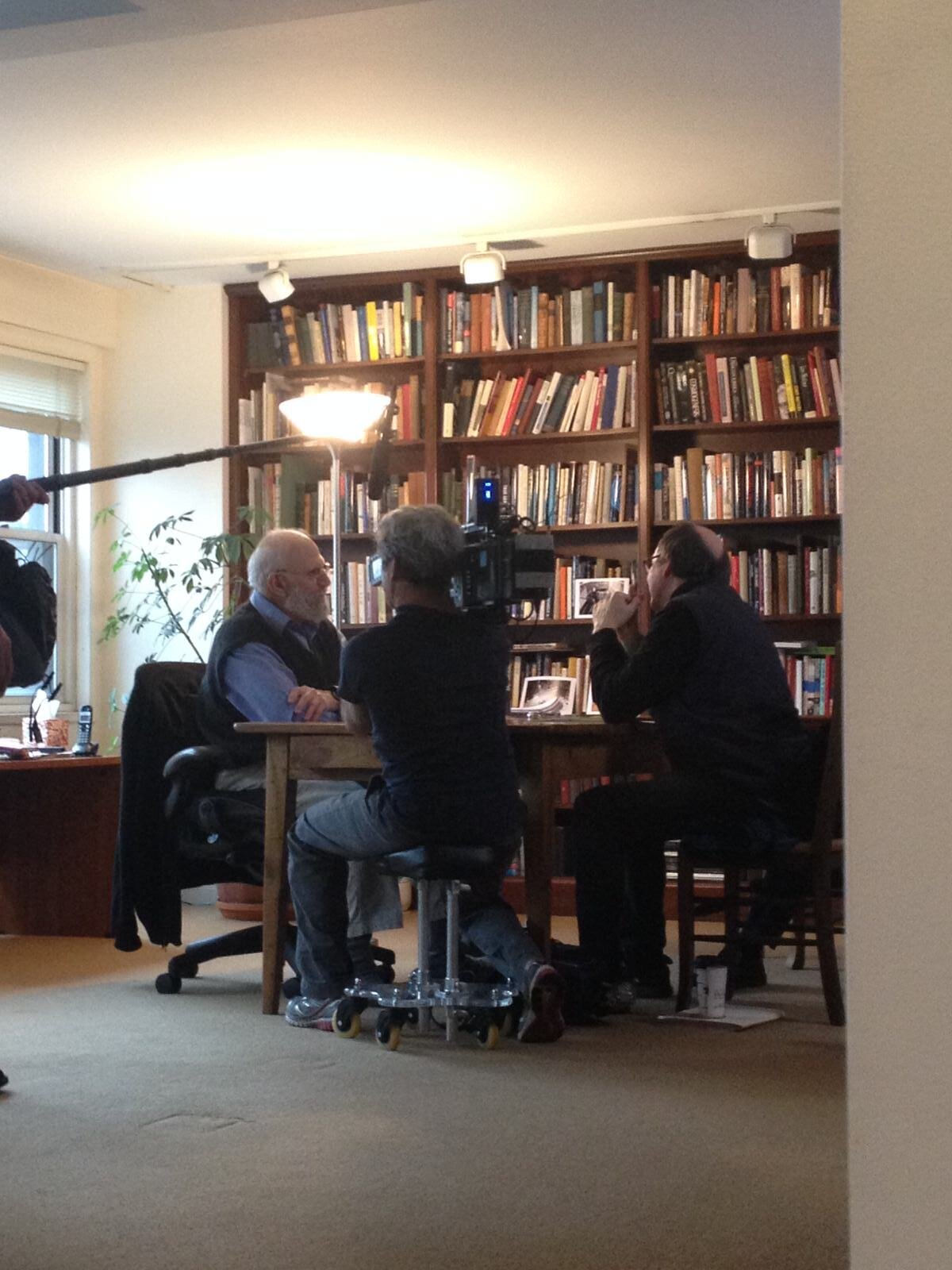Director’s Statement
From the start, this project has been one of the most moving and revelatory I've ever had the privilege of being involved with. We were called in to film Oliver Sacks only two weeks after he received the fatal diagnosis that would end his life seven months later, on August 30th 2015.
From the moment my colleagues and I walked into his apartment on Horatio Street in New York in February 2015 - to begin what became eighty hours of filming with a remarkable 81-year-old man facing the end of life with courage and wonder and honesty - it was clear that virtually every issue of importance about what it means to live a life and to be a human being, was concentrated in his unusual life story:
survival, beauty, art, science, storytelling, love, individuality, difference, dignity, autonomy, agency, wonder, language, meaning, consciousness, community, friendship, yearning, loss, connection with something larger.
The two dozen people we have talked to on-camera in the course of the production - writers, editors, scientists, neurologists, patients, journalists, family members, friends - have spoken with a depth of insight and feeling that has been humbling, illuminating, riveting. Brilliant, sometimes maddening, empathetic, driven, stubborn and filled with a kind of childlike wonder and gratitude, Oliver Sacks was a person obsessed throughout his whole life - as he put it in a deeply moving piece in The New York Times announcing his fatal illness - with what it means "to be a sentient being on this beautiful planet."
His hard-won capacity for connection with an amazing array of patients, readers, colleagues, friends, collaborators, philosophers, and scientists - forged in the course of a lifetime filled with challenges, often self-inflicted but always overcome and transcended - is itself a moving testament to the power of growth and survival.
Some projects call to you because they are meta projects; and this is certainly one of them. Meaning they're not just about what they're about, so to speak - in this case, a brilliant, idiosyncratic doctor and writer hellbent on conveying the essential mysteriousness of what it is to be a human being. Meta projects tell you why it is you do what you do. They speak as much to the essence of the process you the filmmaker- and by extension everyone else looking on - struggles with and goes through as we search for meaning, order, beauty, truth, purpose and resonance in our lives. I knew in a heartbeat that working on this film would be that kind of meta project.
Oliver liked to surround himself with people who belong to the freemasonry of the vulnerable, the open, the seeking - the uncynical.
That's a pretty large group, obviously, but we sensed from the start he felt safe with us, safe in our hands; and all of us were deeply touched, and honored, to be so trusted. He was a dying man with a lot on his mind, and not a lot of time left; he brought everything he had to the table, and it was the least we could do to respond in kind.
Video: BAMPFA - Virtual Talk with Ric Burns, Kate Edgar, and Bill Hayes, moderated by Indre Viskontas. (October 6, 2020)
View archived post-production video conversations on the events page.
At Oliver's memorial service in New York in the fall of 2015, David Remnick, the editor of The New Yorker, said something incredibly powerful and true about Oliver's work, and the uncanny impact it has on people, and certainly has had on me.
"In nearly all of Oliver's pieces," Remnick said, "there comes that moment, that epiphany, that shock, when the reader realizes that Oliver was just as strange, and just as wonderful, and just as elusive as the person he was writing about. And there came the moment, too, when we his readers realized: so are we - so are we."
My colleagues and I have had the privilege of an extraordinary adventure working on this film, and we are deeply grateful to have been included on the journey.
Ric Burns
Biography
Ric Burns is a documentary filmmaker and writer, best known for his eight-part, 17-hour series New York: A Documentary Film, which premiered nationally on PBS to critical acclaim (1999, 2001, 2003). Burns has been writing, directing and producing historical documentaries for over 25 years, since his collaboration on the PBS series The Civil War (1990), which he produced with his brother Ken and co-wrote with Geoffrey Ward. Since founding Steeplechase in 1989, he has directed many films of note for PBS including Coney Island (1991), The Donner Party (1992), The Way West (1995), Ansel Adams (2002), Eugene O’Neill, Andy Warhol (2006), Into the Deep: America, Whaling & the World (2010), Death and the Civil War (2013), American Ballet Theatre: A History (2015), Debt of Honor: Disabled Veterans in American History (2015), The Pilgrims (2015), VA: The Human Cost of War (2017), The Chinese Exclusion Act (2018), and Oliver Sacks: His Own Life (2019). His work has won numerous film and television awards including six Emmy awards, three Alfred I. DuPont-Columbia Journalism awards, two George Foster Peabody Awards, two Organization of American Historians’ Erick Barnouw prizes, three Writers Guild of America Awards for Outstanding Individual Achievement in a Craft: Writing, and the D.W. Griffith Award of the National Board of Review. Burns was educated at Columbia University and Cambridge University. He lives in New York City with his wife and two sons.
Behind the scenes, Oliver Sacks: His Own Life (2019)
Full Filmography for Ric Burns:
CONEY ISLAND (1991)
THE DONNER PARTY (1992)
THE WAY WEST (1995)
NEW YORK: A Documentary Film (1999, 2001, 2003)
ANSEL ADAMS (2002)
EUGENE O’NEILL (2006)
ANDY WARHOL (2007)
WE SHALL REMAIN: Tecumseh’s Vision (2009)
INTO THE DEEP: America, Whaling & the World (2010)
DEATH AND THE CIVIL WAR (2012)
AMERICAN BALLET THEATRE: A History (2015)
DEBT OF HONOR: Disabled Veterans in American History (2015)
THE PILGRIMS (2015)
VA: The Human Cost of War (2017)
THE CHINESE EXCLUSION ACT (2018)
OLIVER SACKS: His Own Life (2019)









